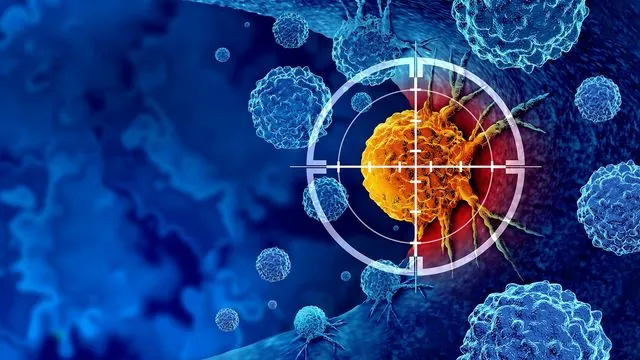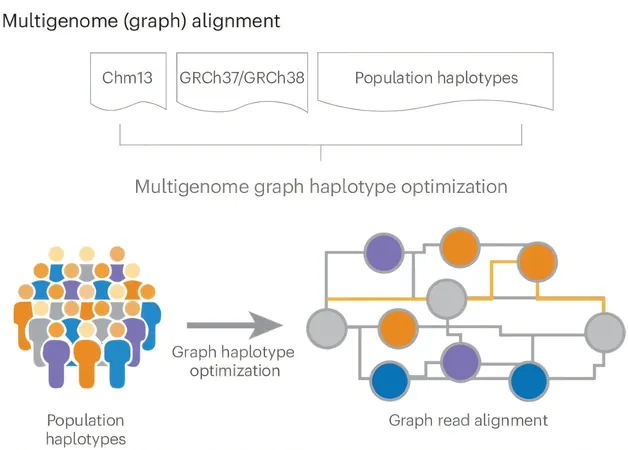
Groundbreaking Discovery Offers New Hope for Aggressive Prostate Cancer Treatment
2024-11-06
Author: Wei
Groundbreaking Discovery Offers New Hope for Aggressive Prostate Cancer Treatment
Recent research from the University of Michigan Rogel Cancer Center has illuminated promising new pathways in the battle against aggressive prostate cancer, specifically a newly identified subtype linked to genetic alterations in the CDK12 gene. The findings, detailed in two pivotal articles published in Cell Reports Medicine, provide profound insights into the mechanisms of cancer development and outline a novel therapeutic approach.
The CDK12 gene is pivotal in cell regulation, and its loss has been observed in approximately 7% of metastatic prostate cancer patients. This genetic alteration correlates with a more aggressive disease progression. In a significant revelation, the research team utilized DNA and RNA sequencing from patient tumor samples to uncover these genetic factors affecting cancer development. Interestingly, anomalies in CDK12 are also implicated in certain ovarian cancers, showcasing the gene's broader significance in oncology.
To uncover the underlying mechanisms of CDK12 loss, researchers modeled the condition in mice, mirroring the genetic changes seen in human prostate cancer. The results were startling: when CDK12 was disrupted in mouse prostates, precursor lesions developed, and the additional loss of the p53 oncogene led to the onset of invasive prostate cancer. According to Dr. Arul M. Chinnaiyan, senior author and director of the Michigan Center for Translational Pathology, this genetically engineered mouse model provides a crucial parallel to human disease dynamics.
Through this mouse model, researchers discerned that the loss of CDK12 provokes DNA damage by activating other oncogenes and exponentially increasing DNA replication speed. This collision of activities results in severe DNA instability—a phenomenon that could accelerate cancer progression.
What truly sets this research apart is the development of a targeted therapy aimed at the dual-CDK12 and CDK13 pathway. The trial involved a novel degrader compound, which distinctly binds to CDK12 and CDK13, inhibiting the growth of cancer cells while leaving normal cells unharmed. This oral degrader represents a significant innovation, as many existing protein degraders are too large to be administered orally, hampering their effectiveness in drug formulation.
Moreover, researchers found that inhibiting CDK12 and CDK13 activates the AKT signaling pathway, a crucial player in cancer biology. When the new degrader was administered in combination with existing AKT-targeting therapies, the results were synergistic, dramatically enhancing the destruction of cancer cells. This finding bodes well for developing combination therapies that could mitigate issues of resistance frequently encountered in cancer treatments.
Dr. Chinnaiyan underlined a critical aspect of this research: "Single therapies often struggle due to resistance. By exploring effective combinations, particularly with FDA-approved agents, we could potentially obviate resistance mechanisms." This study also highlights a collaborative international effort with Dr. Ke Ding from the Shanghai Institute of Chemistry, enhancing the global pursuit of effective cancer treatments.
This groundbreaking research is a beacon of hope for patients battling aggressive prostate cancer, elucidating new strategies for treatment, improving outcomes, and demonstrating the promise of combining targeted therapies for more effective management of this challenging disease.
As the medical community moves forward, this innovative approach could transform treatment protocols, offering patients a fighting chance against one of the most formidable forms of cancer. Stay tuned for more updates on this evolving story in cancer research!


 Brasil (PT)
Brasil (PT)
 Canada (EN)
Canada (EN)
 Chile (ES)
Chile (ES)
 España (ES)
España (ES)
 France (FR)
France (FR)
 Hong Kong (EN)
Hong Kong (EN)
 Italia (IT)
Italia (IT)
 日本 (JA)
日本 (JA)
 Magyarország (HU)
Magyarország (HU)
 Norge (NO)
Norge (NO)
 Polska (PL)
Polska (PL)
 Schweiz (DE)
Schweiz (DE)
 Singapore (EN)
Singapore (EN)
 Sverige (SV)
Sverige (SV)
 Suomi (FI)
Suomi (FI)
 Türkiye (TR)
Türkiye (TR)